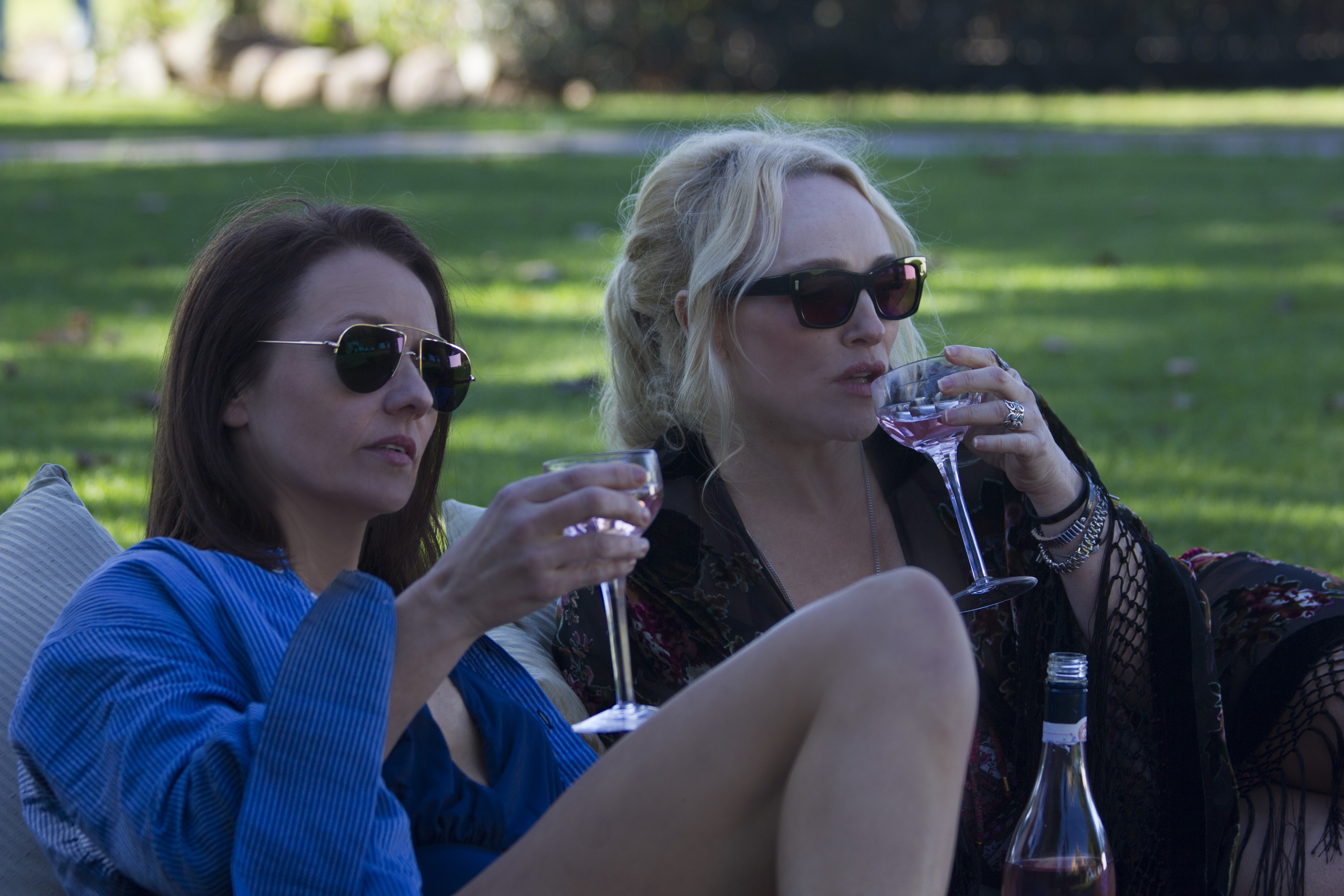Film Review: ‘The Second’
By Eddie Cockrell
LOS ANGELES (Variety.com) – “This is what happens when you make up stories,” one character says about three-fourths of the way through the confidently ambitious “The Second,” and the line is a succinct summation of the deceptively deep goings-on beneath the film’s faintly sordid surface. The maiden project developed and produced under the Screen Queensland Originals program in partnership with the streaming service Stan (the film is playing commercially now and will commence it’s Stan stand July 20), “The Second” is a sexy and satisfying thriller that toys with time, memory and the provocative side of storytelling.
In keeping with the mysterious spirit of the proceedings, shhh — no names, please: riding the crest of her well-received and best-selling erotic thriller, the Writer (Rachael Blake) is off to her family’s sprawling and regally laid-out country estate for a sex-fueled working weekend with her boyfriend the Publisher (Vince Colosimo). Soon after they settle in, the Writer announces the imminent arrival of her childhood friend the Muse (Susie Porter).
The two women seem to have a charged history involving secrecy and no little brinkmanship, which slowly reveals itself to the Publisher’s confusion and then chagrin. Not only that, but the provenance of the Writer’s best-seller comes into question, even as she struggles with a monumental and debilitating case of writers’ block on the new book for which everyone’s clamoring. To top things off, the film occasionally cuts to a police interrogation room, where the Writer is being grilled unmercifully by the Detective (Susan Prior) regarding some vague offense. This may or may not explain the presence of a sinister local known only as — and this is important — the Brother (Martin Sacks). What exactly is going on here?
Genuine and well-earned narrative uncertainty is a rare thing in cinema these days; the late French auteur Alain Resnais was perhaps the master of elasticizing memory and the past in his work (perhaps coincidentally, his first English language film, 1977’s Providence, stars John Gielgud as a dying novelist whose family become pawns in his fiction). The risks are real: keep the audience at too great a remove and filmmakers might lose them to indifference; give them too much information and, well, they’re either going to laugh the work off the screen or, in the current climate, make it a blockbuster.
Stephen Lance’s script and the rock-solid direction of Mairi Cameron (an industry vet making her feature debut) use the tried-and-true promise of a steamy three-way as a trojan horse to draw audiences into a world that turns out be more about the false starts, alternate realities and mounting frustrations of the creative process. That the Writer turns out to be a far more malevolent person than she initially lets on gives the filmmakers license to, for lack of a better word, Blumhouse the proceedings with just enough violence and mystery to keep viewers off-guard — and interested. In an art form of illusion, the filmmakers reason, narrative is fair game. And this is what happens when you make up stories.
The trio of leads do strong ensemble work, and the magnificent house, an actual estate some three hours west of Queensland’s capital, Brisbane, is an engaging character in and of itself. The strong tech credits belie the $740,000 budget and are a credit to the ingenuity of lead producer Leanne Tonkes.
Fitting use is made of Henry Kendall’s poem Bellbirds, and Animotion’s 1984 synth-pop hit Obsession, with Phillip Radford’s stylishly creative opening and closing credit sequences a distinctive plus.

